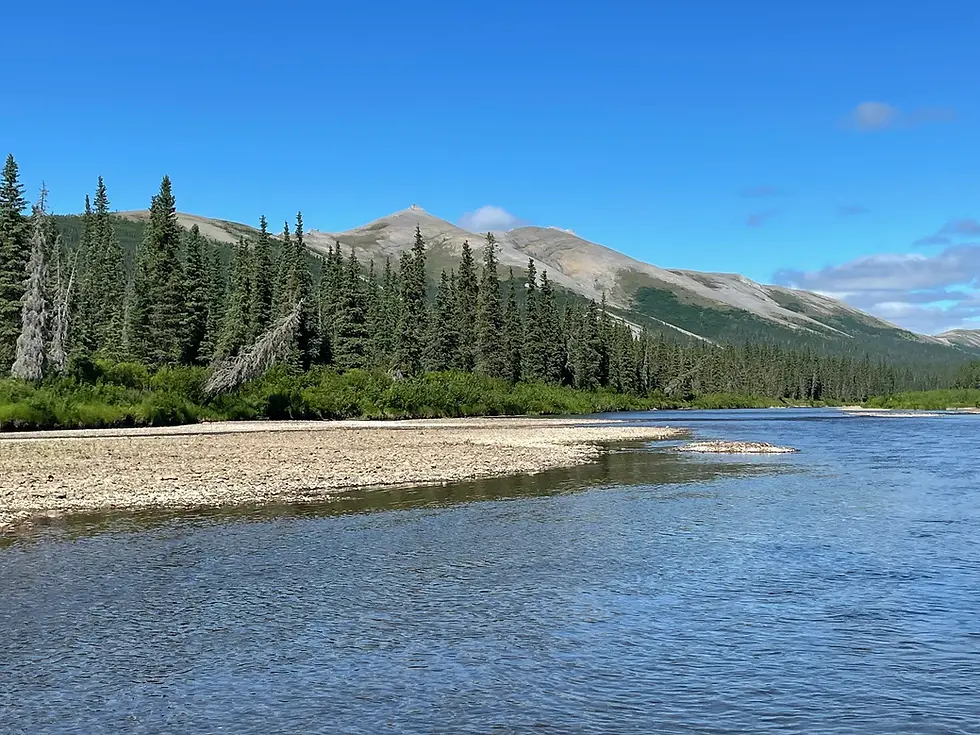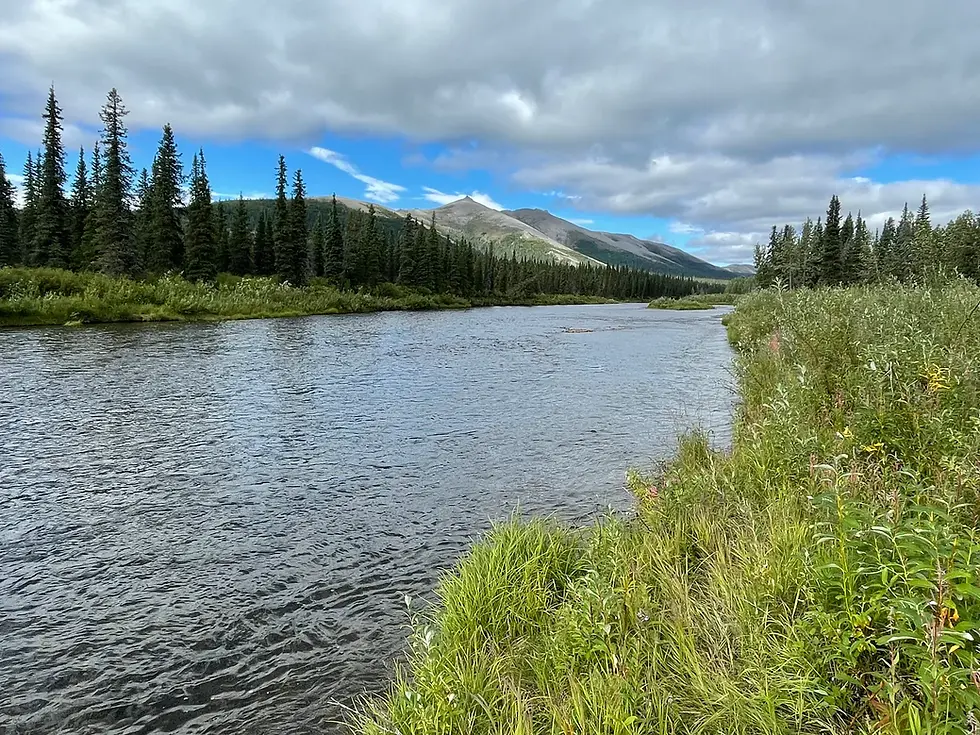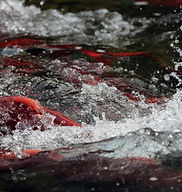Declining Sea Ice Extent in the Bering Sea Causes Ecological Domino Effect
- Norton Bay Watershed Council

- Jun 26, 2020
- 3 min read
June 27, 2020

The following is a synopsis of a LEO Network webinar entitled Rapid Change: The Story of 2019 in Northwest Alaskan Seas and Ecosystem Impacts given on June 23rd by Gay Sheffield with UAF’s Sea Grant Marine Advisory Program.
Sheffield’s talk chronicled recent ecological events within the Bering Sea region caused by warmer ocean temperatures and declining sea ice. Among these events, in late February 2018, Little Diomede experienced a big wind event. The village was “slammed by huge waves that would normally have been under ice.” While sea ice extend in the Bering sea has been in decline over the past two decades, “in 2018 it drops off the map.”
Again, in early 2019 there was very little ice. By April, Sheffield reported, “it was all out of the way.” People relying on wild seafood had a difficult time hunting safely. During annual NOAA Alaska Fisheries surveys in the southern Bering Sea, “there was no cold water as far north as Norton Bay.” The NOAA survey indicated that predatory cod had moved north, with pollack populations up 5,000 percent.
“Pacific cod same thing.” Without cold, icy waters, “there’s nothing to separate the small fatty forage fish in the north from the large fish coming in from the south.” The commercial long-liners between Little Diomede and Saint Lawrence island caught Pacific cod in good numbers for the first time. “Capelin and other small fatty fish were down 70% and arctic cod have gone down 100%. They’re hard to find.” Large numbers of seals washed up in several locations including Shishmaref, Bering Island, and Nome. The animals were in very poor condition. Seabirds died off in large numbers in the region as well, and necropsies indicated starvation as the cause.
At the 2019 winter solstice, the Bering Strait was still open. Then the weather turned cold and the waters iced up. But in January 2020 there was a storm and the ice crumpled. “We made ice, but we were battling trying to cool off the water below.” The spring maximum ice extent was relatively far south, but the ice was thin and “over the course of the winter it seemed like it was rotting from below” Sheffield continued. “We’re letting the southern Bering Sea ecosystem in. Our seals and seabirds aren’t doing very well. They’re hungry.” The forage fish seals and seabirds depend upon, such as caplin, hooligan, tomcod, blue cod, and arctic cod “may be trying to find cold water elsewhere.” That and “Pacific cod and pollock gobble them up.
Unfortunately, the Covid-19 pandemic has caused the cancelation of the NOAA Fisheries research for the year. That makes local observer data to the LEO Network all the more important.
This year, sea surface temperatures in western Norton Sound are “running cold because we had ice. But look at us now. Sea surface temperatures are rocketing up because we’ve had such warm temperatures. If we get a good storm it will stir things up – upwelling the colder waters. What’s going on below? We’d love to know, but the surveys that would tell us have been canceled at this point.”
So far, there have been reports of “a few shearwaters and guillemots that are coming in emaciated. Some seals looking a little thin.” Sheffield reported. “Large fishing processors are focused right now on pollock.” Adding that “Russian traffic is earlier and very far north. With the loss of ice, we’re transitioning the whole Bering Sea ecosystem.”
Sheffield summed up the growing concerns about diminishing sea ice, stating “this is a huge health and food security issue for our communities on both sides of our border. We’re watching this unfold. Without the research we’re on our own. We need those individual reports from our coastal communities to help fill in the gaps.”
The Local Environmental Observer (LEO) Network shares observations about unusual environmental events as a means of increasing understanding about environmental change. To learn more about the LEO Network, see https://www.leonetwork.org








Comments